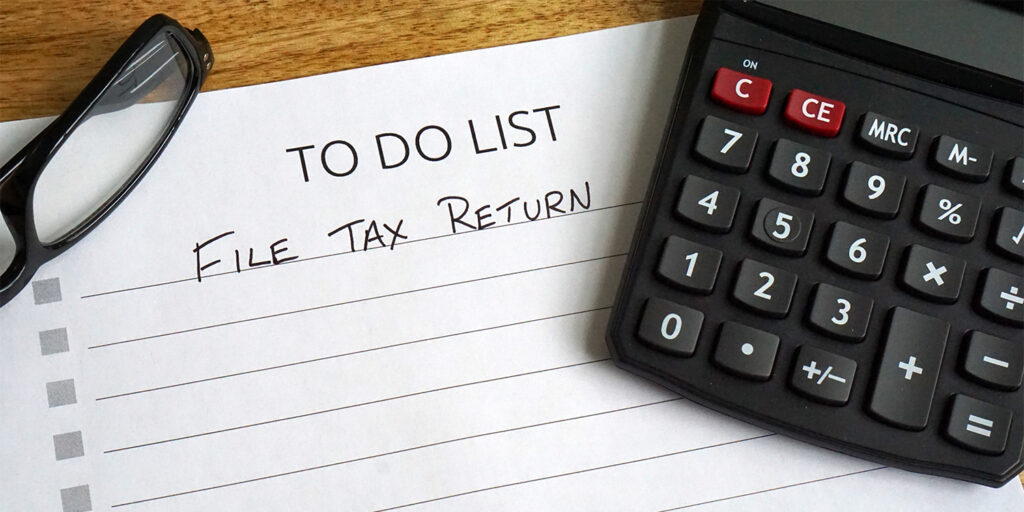In the 2021/22 tax year, HMRC reported that 630,000 people filed their Self Assessment tax returns the day before the January deadline. Around 21,000 submitted them just an hour in advance, and 2.3 million missed the cut-off completely.
If you’ve found yourself putting your tax return off in the past, you’re not alone. Procrastinating is easy, especially when you have a million and one things to do as a business owner, but getting into a routine of early submissions can be hugely beneficial.
In this article, we highlight the seven key reasons to submit your Self Assessment tax return early. We also share some top tips on how to get organised during tax season. Let’s get started.
1. Avoid registration delays
It’s no surprise that tax returns are not quick or easy, and the lengthy registration process could put you at risk of missed deadlines.
If this is your first tax return, you’ll need to start by registering for Self Assessment. This lets HMRC know that you will be completing a tax return and they should expect a submission from you.
- How to register for Self Assessment
- HMRC’S Time to Pay scheme for Self Assessment customers
- HMRC issues warning about new Self Assessment scams
Once you’ve registered, HMRC will send you your Unique Taxpayer Reference (UTR) which you’ll need to submit your tax return.
The registration deadline is 5th October. If you miss this cut-off, you could be fined for late registration. If you’ve registered before but have not submitted a tax return yet, you’ll need to reactivate your account before this date.
It normally takes around 10 working days for HMRC to create your account, and 21 days if you’re based abroad. However, it could take longer depending on the time of year.
Until you’re registered for Self Assessment, you can’t submit a tax return. So, to avoid delays and potential charges, make sure you register as early as possible.
2. More time to plan your finances
Filing your tax return early doesn’t mean you have to pay your tax bill early. By doing the admin in advance, you’ll know how much tax you owe before the January deadline and have more time to budget accordingly. However, if you file after Christmas and find that you don’t have the funds to pay your taxes on time, you could be charged for late payment.
You can also choose to pay your tax bill early if you want to. This can make your company’s financial planning easier, as it means you’ll cross it off your list and have fewer bills to worry about later. Submitting your tax return well in advance gives you more time to prepare for these expenses and have a clearer view of your cash flow.
3. Avoid penalties
The earlier you submit your Self Assessment tax return, the less likely you are to incur any penalties. HMRC could charge you for:
- Not paying your tax bill in full by midnight on 31st January
- Failing to register for Self Assessment before 5th October
- Failing to inform HMRC about any changes to your circumstances that could affect your tax liability
- Errors in your paperwork
Most of the above charges are based on your personal circumstances. However, if you fail to submit your tax return and pay your bill on time, there is an immediate penalty of £100. If your tax return is more than 3 months late, there are further fees and interest.
Therefore, to minimise the risk of acquiring additional fees and reduce your company’s outgoings, it’s beneficial to file your tax return as early as possible.
4. Avoid busy phone lines at the last minute
With so many people waiting until January to submit their tax returns, HMRC helplines get very busy after Christmas. This means that you could be waiting longer than usual if you need to get in touch with them.
Also, if there are any further problems once you have spoken to an advisor, you could be more likely to miss the deadline and pay a penalty. So, by submitting your tax return outside of peak times, you can avoid these unnecessary delays.
5. Find out if you’re owed a tax refund
You could be owed a tax refund if, for example, you’re an employee of your company, but have paid taxes as a self-employed individual. In this case, a refund could make a significant difference to your company’s cash flow.
You could use the extra funds on new office equipment, pay off any debt, or add it to your pension. Either way, it’s always better to have money coming in than going out.
If you’re owed a tax refund, submitting your tax return early means that HMRC can process this for you sooner. Otherwise, you may have to wait until April for an automatic calculation.
6. More time to prepare the right documents
To submit your tax return, you’ll need several documents, such as P45s, P60s, expenses, invoices, and bank statements dating back to the start of the tax year. The longer you leave it, the further back you’ll need to go.
Also, some banks don’t give immediate access to records. So, depending on your provider, you may need more time to request statements.
By filing your tax return in advance, you’ll give yourself more time to find all the documents you need without the worry of running out of time.
7. Reduce the stress of tax season
One in five small business owners in the UK admit that they dread doing their taxes. On top of this, the number of new UK companies formed in the 2022/23 tax year rose by nearly 6.5% compared to the year before. With new incorporations and first-time tax returns increasing, you could be facing even longer delays, especially given that it has been widely reported that HMRC are experiencing the longest delays to resolve queries in their history.
While the stress of tax season may be inevitable, you can reduce it significantly simply by doing the paperwork early and avoiding the January rush. If you get it done before Christmas, that’s a huge weight off your shoulders, making the festive season far more peaceful.
How to get organised ahead of tax season
If you’re filing your first tax return, getting used to the process can be tricky. However, good organisation skills can make the experience far more seamless.
Here are some of our top tips for getting organised and prepping everything you need to file your tax return early:
- Create a personal folder for all your tax paperwork. This could be a physical or digital folder arranged in a way that works for you. The idea is to keep everything in one convenient and memorable place that’s easy to access.
- Once you’ve found a system that works for you, try to use the same filing system every year. Sticking to a routine means that you’re less likely to forget or miss a step, and getting started will get easier each year.
- Update your records as you go. As and when you have new documents to add, remember to file them correctly so that they’re easier to find later.
- Try an app or online tool to help you keep track of your expenses. Rather than keeping physical receipts that can easily get lost, there are plenty of financial apps that can help you manage your business expenses.
- If you keep physical paperwork, try going paperless. The most common way to submit your tax return is online, and it’s much easier to keep track of digital records as opposed to physically sorting through a year’s worth of documents.
- If this is your first tax return or if you’re simply forgetful, try setting a reminder on your phone to submit your tax return early. Add any deadlines you need to know to your calendar, and set a notification as far in advance as you need to, so that they don’t get missed.
Summary
We hope you feel encouraged by this article to beat the tax season peak times and get your tax return submitted early. If this is your first time, it can be daunting, but remember to give yourself plenty of time, stay organised, and remember your key deadlines.
If you have any comments, please leave a comment below, or get in touch with our company formation team if you have any questions.
Please note that the information provided in this article is for general informational purposes only and does not constitute legal, tax, or professional advice. While our aim is that the content is accurate and up to date, it should not be relied upon as a substitute for tailored advice from qualified professionals. We strongly recommend that you seek independent legal and tax advice specific to your circumstances before acting on any information contained in this article. We accept no responsibility or liability for any loss or damage that may result from your reliance on the information provided in this article. Use of the information contained in this article is entirely at your own risk.














Join The Discussion